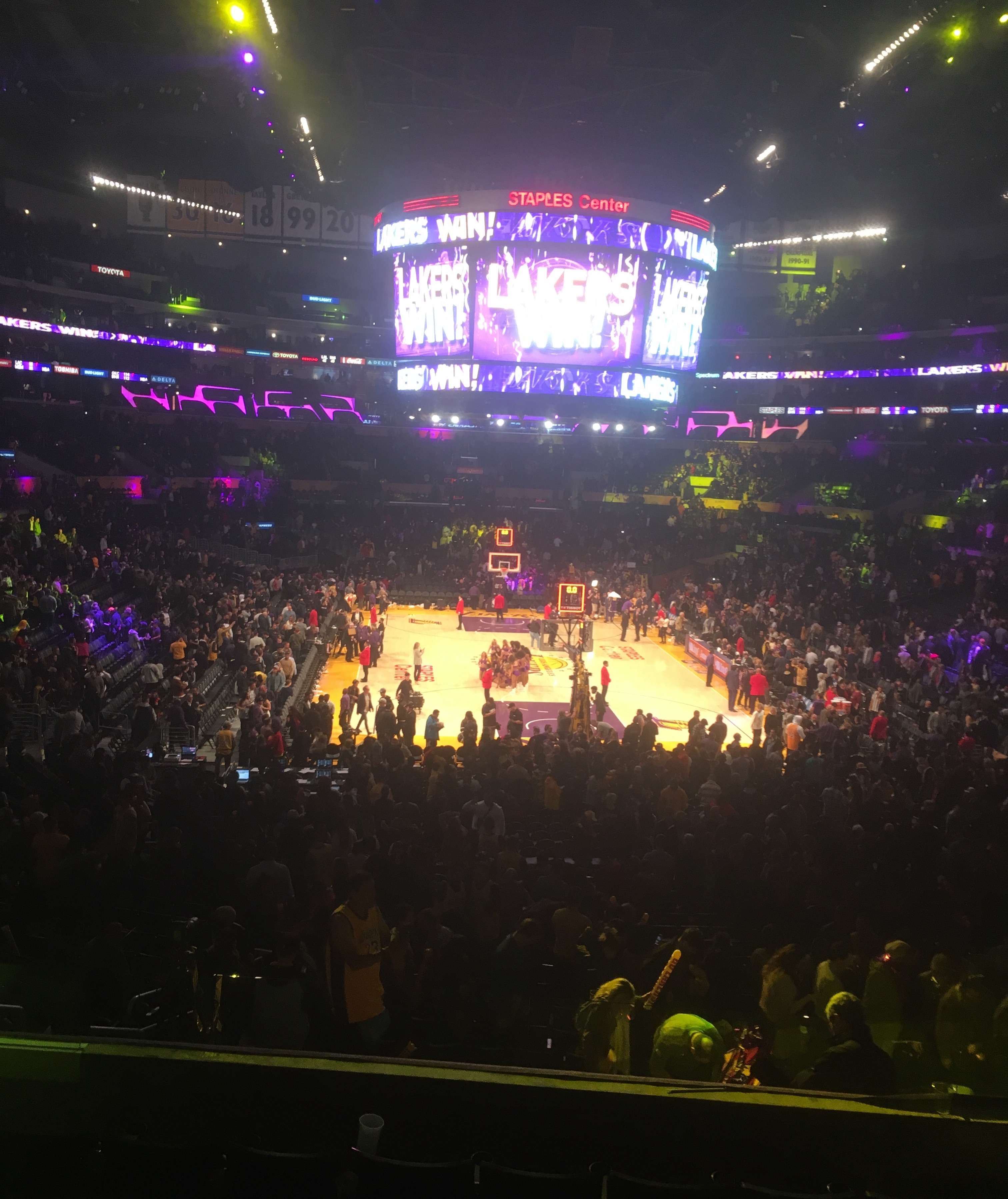
In the wake of increased questions about the NBA’s schedule and TV viewership, Commissioner Adam Silver has announced potential initiatives that, if passed, could be enacted in time for the 2021 season.
As summarized by the Washington Post, the proposed tweaks would slightly shorten the regular season, overhaul playoff seeding and formatting and, most radically, introduce a midseason single-elimination tournament that would give teams a chance to compete for a second trophy alongside the NBA championship.
The tournament idea would closely resemble the knockout competitions that are a staple of European soccer and basketball leagues, and it has been publicly championed by Silver. But any ideas that a tournament like this one would increase competitiveness or fan engagement are extremely misguided.
The NBA has played 82 games since the 1967 season, when the league expanded from 10 to 12 teams and bumped its number of games from 81 to 82. The 82-game schedule has survived over 50 years and expansion to 30 teams mostly because nobody’s ever thought to do it differently.
But with recent NBA developments, the appreciation for the 82-game slog is likely at an all-time low. The growing number of franchises that are tanking, rebuilding, reimagining or any other buzzword of choice has led to a large number of teams being out of contention early, increasing the number of February and March games with little competitiveness or consequence. And the new pattern of “load management” also means star players are appearing in fewer games, despite the NBA taking steps to reduce back-to-backs and eliminate four-game-in-five-day stretches several years ago.
The NBA deserves a lot of credit for thinking outside the box and attempting to tackle these issues head-on, and changes like a 76-game schedule and playoff reseeding are likely to get widespread support. The Association has earned a reputation for being more bold and forward-thinking than the other major sports leagues, and they’ve often been rewarded for it. But ripping up a month of the regular season for a participation-trophy tournament is too strong an upheaval for nobody’s benefit.
The main idea, for supporters of the tourney, is that having a tournament where any team is a five-win hot streak away from a trophy will rejuvenate players and fan bases alike. Even non-contending teams will jump at the opportunity to come away with a tangible accomplishment from an otherwise lost season. With a title on the line, it would create playoff-quality basketball during the dog days of November, with the league’s best players on the court and — don’t forget — a month’s worth of lucrative sudden-death national TV games.
I could choose to make the counterpoints technical and complex, but they don’t need to be. The reason why an NBA midseason tournament would be doomed from the start really boils down to one bottom line: Nobody’s gonna care.
Adam Silver and the NBA are operating under the assumption that players, front offices and especially fans are going to care about an extra trophy. They don’t, and they won’t.
Let’s start with the players. The few who have chosen to speak publicly about the issue have been skeptical. Both former MVP James Harden and PJ Tucker of the Houston Rockets gave comments to Sports Illustrated reporters that were less than kind.
“We’re fighting for an NBA championship, I don’t want to play for anything else,” Tucker said. “It’s like a consolation prize or something? I don’t know. You play games to win an NBA championship, period.”
Harden was even more blunt, reacting to the question by rhetorically asking, “Are we in college?”
It’s true that the NCAA’s March Madness tournament has been a huge national success and creates the sudden-death drama that this proposed tournament would seek to replicate. But the tension is heightened by the knowledge that those 64 teams are playing for the highest honor that level of play has to offer.
The NBA can attempt to inflate the importance of the new tournament all it wants, but the simple fact that it’s being played halfway through the season shows it’s not the tournament that matters. Like Tucker alluded to, teams want to win the last game.
As Kurt Selin of NBC Sports puts it, “It’s not like the Lakers or Celtics are going to hang ‘Mid-Season Tournament Champions’ banners up, and I’m not even sure teams starved for things to put in the rafters would do it.”
The NBA championship is the ultimate goal, as it would be for any fan of any remotely contending team. So what then is going to stop Harden’s Rockets, Kawhi Leonard’s Clippers, LeBron James’s Lakers or any other team with a puncher’s chance at the Larry O’Brien trophy by the end of November to punt on the midseason lottery and save their top players for the stretch run?
In the era of rest and injury prevention, this would be as good a time as any.
Some unconfirmed reports have floated the idea of bonuses or even a bonus draft pick for victorious teams. But adding financial incentives last season to the All-Star Game didn’t transform that exhibition into anything worth watching. And unless the NBA took the even more European step of implementing a group stage made of regular-season games before the knockout rounds started, this tournament would be nothing but an exhibition as well.
All-Stars have shown year after year that they’ll prioritize injury prevention and rest over fantasy basketball when games don’t count in the season standings.
And speaking of rest, how is this tournament a solution to easing the burden of the regular season when, by definition, you’re now asking some teams to play more games than others? The Golden State Warriors have had lasting side effects with the workload of advancing to five consecutive NBA finals, but they did so on merit, and any team would gladly trade a little extra tread on their tires for Golden State’s three titles.
But let’s examine this scenario, which could be extremely viable within proposed changes. A middling Western Conference team enters the midseason tournament in the play-in round and faces a mix of untalented tanking teams and elite teams resting their top players. Couple this with hot shooting and our team finds itself on a four-game win streak and in the midseason title game.
Fast-forward to the end of the season, and our Western Conference team is in eighth place in the standings. Under the proposed play-in tournament, which could also be enacted in 2021, our Western Conference team travels to the seventh-seed and loses a hard-fought game. They would now face the winner of a 9th/10th seed playoff game for the final spot. If they win that game, then there’s reason to rejoice — our team has made the playoffs! But now, our team finds itself playing a number one seed. That’s tough enough as it is, but in this scenario, it comes with the added disadvantage of having played six more regular-season games than the other team.
There’s also the challenge of how front offices will want to approach this schedule addition.
With the tournament situated before the trade deadline, would general managers make calculated additions to their rosters with a one-to-five game stretch in mind? Possible, but doubtful. But if it does, it could create some awkward scenarios where a player is dealt a term that wants to contend for the midseason title in November, then traded again to a regular-season contending team at the deadline in February.
Then, there’s the question of how players and coaches are evaluated. Would GMs use the best-of-one midseason tournament to project a “clutch factor” or playoff performances in a best-of-seven series? During an up-and-down 82-game regular season where the league’s best and worst teams have plenty of two-to-five game win and loss streaks alike, it becomes a slippery slope to randomly place more importance on one of those midseason stretches.
Say a team that wins the midseason title languishes outside of the playoffs in the grand scheme of the regular season. Would a run showcasing the team’s “potential” against the backdrop of a losing season be an indictment on the coach? Or would a well-timed hot streak buy a bad coach more time? Both are plausible; both would be unfair.
Or, let’s suppose something happens that we haven’t previously mentioned: The league’s best teams take care of business and advance in the tournament, setting up heavyweight showdowns in the semifinals or finals in the tournament. Who would it matter to?
Make no mistake about who the league is banking on it mattering to — the fans. The league is hoping that sports consumers will choose December as NBA midseason tournament month, just before the NFL and college football playoffs hit in January. But the viewership won’t change.
For fans of meaningless trophies, there are no less than 40 college bowl games, and trophies for regional rivalries and conference championships may push that number to triple digits. And the type of person who would rather watch basketball than the football stretch run is the type of person who’s already excited about the upcoming Clippers-Bucks regular-season matchup.
And if a fan’s team loses in the first round of this tournament, why would the fan watch subsequent rounds when the main show is just about to begin? Even if a team brings home the title, the mindset ingrained in the American sporting consciousness is full of cliches like, “It’s not how you start, it’s how you finish” and “peaking at the right time,” which are all geared toward the idea that the most important games are at the end.
Ask fans of Gonzaga Bulldogs basketball if their non-conference Maui Invitational title from 2018 soothes the pain of that year’s Elite Eight upset loss. Ask fans of soccer giants Liverpool, currently leading the English Premier League, if they remember who won last year’s FA cup after their club was knocked out in the third round. And ask fans of the University of Central Florida football team if claiming superiority based on an alternate championship got them anywhere.
The level of competitiveness and drive that it takes to get to the NBA means the league is filled with players who won’t accept moral victories. And in this championship-or-tank sports commentary climate, it’s become clear that the fans don’t either.
So the NBA is not the place for participation trophies. For better or for worse, players, owners and fans are focused on the marathon of the regular season, culminating in that final kick for the playoffs. There’s no reason to start asking people to sprint in the middle.
Play-in tournaments could make the playoffs more exciting and make more teams feel they’re in it. But a midseason tournament stretches things too far. Hopefully, Commissioner Silver will listen to the pushback from fans, players and media alike and scrap this idea before it gets off the ground.
Paxton Ritchey completed the reporting and writing for this story under the supervision of Dr. Ken Waters in Jour 590: Sports Reporting in Fall 2019.



